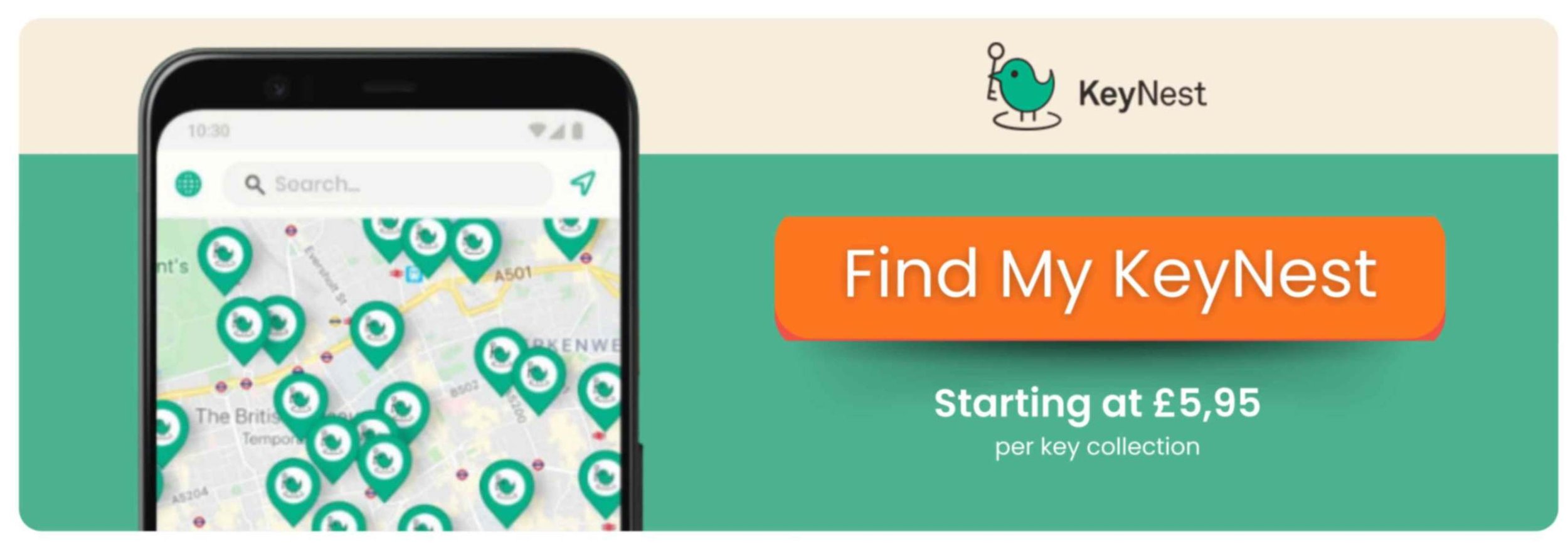Over 1500 key exchange locations nationwide
Legal Requirements For Airbnb & Holiday Let Rentals In Reading
Understanding and adhering to regulations of Airbnb in the Uk especially in the Reading area is essential for operating a successful and compliant short-term rental. Hosts must navigate various rules, including zoning, licensing, and health and safety requirements. Ensuring tax compliance is equally important to avoid financial penalties and maintain a transparent business.
Maintaining peace in the neighborhood by adhering to noise regulations is crucial for fostering positive relationships. Additionally, proper waste management and sustainable practices can enhance your property’s appeal to environmentally conscious guests. Taking these steps helps you stay compliant and builds trust with both local authorities and guests. A well-managed Airbnb property not only meets legal standards but also offers a superior experience for visitors. By following these guidelines, you can protect your property from potential regulatory issues. Keeping up with regulatory changes is vital, as rules may evolve over time.
Staying informed ensures you remain a responsible and adaptable host. Reading Borough’s efforts to regulate short-term rentals aim to maintain community balance while supporting tourism. As a host, your cooperation is essential to this goal. Embracing a proactive approach to compliance sets you up for long-term success. Ultimately, being an informed and responsible host contributes to a positive experience for everyone involved.
1. Zoning & Planning Permission For Airbnb Rentals In Reading
Zoning regulations and the need to obtain planning permission play a crucial role in determining whether you can operate on booking platforms like Airbnb in Reading. These rules that apply are in place to maintain the character of residential areas and manage the impact of short-term rentals on the community that may need planning permission for an Airbnb.
Residential zones: Check if your property is in a designated residential zone and whether short-term rentals are permitted based on its laws and regulations.
Commercial zones: Properties in commercial zones that need planning permission may have different specific regulations and make short-term stays critical.
Mixed-use properties: Ensure that your property usage aligns with zoning regulations for mixed-use developments to the local planning authorities.
Consult local council: Contact the Reading Borough Council for a planning application and to confirm zoning rules for your property.
Planning permissions: Obtain planning permission is required for short-term rental operations.
Neighbor concerns: Be proactive in addressing any neighbor concerns regarding your Airbnb property.
Regulatory updates: Keep an eye on local government announcements for zoning changes or whether or not your listing required planning permission. Hosts without permission may face penalties, fines and suspensions.
2. Licensing & Registration Requirements for Short-Term Rental Hosts
Depending on the property type and location within Reading, the local council regulations requires licensing and registration that may be mandatory to rent out a property for short-term to guests. These requirements aim to maintain housing standards and residential premises for short-term rentals for guests.
Mandatory registration: Verify whether Reading Borough local rules require hosts to register their properties and need for approval to operate an Airbnb. Just keep in mind that assessments are now a legal law in Reading.
HMO licensing: If your property qualifies as a House in Multiple Occupation (HMO), you may need specific requirements and licenses.
Application process: Understand the steps required to apply for a rental license to have a permission to operate.
Renewal requirements: Keep track of national regulations for license renewal deadlines and conditions.
Inspection protocols: Be prepared for property inspections to ensure compliance with safety standards as part of rules for short-term rentals in Reading.
Administrative fees: Factor in the cost of obtaining and renewing licenses.
Compliance records: Maintain documentation to demonstrate adherence to licensing requirements.
3. Short-Term Let Health And Safety Regulations For Reading
Health and safety measures are designed to protect both guests and property owners and the holiday accommodation that they manage. Meeting these standards is essential to providing a secure and comfortable environment for your guests.
Fire risk assessment and safety: Install smoke alarms, fire extinguishers, and carbon monoxide detectors to enhance fire safety.
Electrical safety: Ensure that electrical systems and appliances are regularly inspected.
Gas safety: Arrange annual inspections for gas appliances by a certified professional.
Building safety: Maintain structural integrity and ensure emergency exits are accessible.
First-aid kits: Provide a well-stocked first-aid kit for guest use.
Safety guidelines: Clearly communicate safety instructions and emergency procedures to guests.
Regular maintenance: Conduct routine checks to address any health or safety concerns.
4. Tax Obligations As Part Of Airbnb Regulations In Reading
Running an Airbnb property in Reading comes with tax responsibilities that you must fulfill to avoid penalties. Understanding these obligations will help you manage your finances and stay compliant form your income earned from hosting.
Income tax: Report rental income on your annual tax return.
Rent-a-Room scheme: Take advantage of tax relief if you rent out a furnished room in your home.
VAT considerations: Determine if you need to register for VAT based on your rental income.
Business rates: Check if your property qualifies for business rates instead of council tax.
Expense deductions: Keep records of allowable expenses to reduce your taxable income.
Tax deadlines: Ensure timely submission of tax returns to HM Revenue & Customs (HMRC).
Seek professional advice: Consult an accountant for guidance on tax planning and compliance.
5. Noise And Disturbance Regulations Implication
To maintain a peaceful environment for residents, Reading Borough has noise and disturbance regulations and restrictions that affect short-term rentals. Understanding these rules can help you avoid complaints and penalties.
Quiet hours: Set clear guidelines for quiet hours to prevent disturbances.
Guest rules: Communicate noise restrictions to guests before their arrival.
Monitoring systems: Consider using noise monitoring devices to detect excessive noise.
Neighbor communication: Maintain positive relationships with neighbors and address concerns promptly.
Complaint procedures: Familiarize yourself with the process for handling noise complaints.
Local regulations: Stay updated on noise control regulations enforced by Reading Borough.
Event restrictions: Avoid hosting large events or parties without proper authorization.
6. Short-Term Rental Regulations On Waste Management & Sustainability Requirements
Proper waste management and sustainability practices are essential for Airbnb hosts in Reading. These practices contribute to environmental conservation and help you comply with local regulations.
Recycling guidelines: Follow the council's guidelines for separating and recycling waste.
Waste collection schedules: Keep track of collection dates to avoid missed pickups.
Guest instructions: Provide clear information on waste disposal procedures.
Eco-friendly amenities: Offer environmentally friendly products like reusable toiletries and biodegradable cleaning supplies.
Energy efficiency: Implement measures to reduce energy consumption, such as LED lighting.
Water conservation: Encourage guests to minimize water usage during their stay.
Sustainable practices: Showcase your commitment to sustainability in your Airbnb listing.
Navigating Legal Requirement In Reading
Understanding and adhering to Airbnb regulations, laws and other rules in Reading is essential for operating a successful and compliant rent a room listing or short-term rental guest house. From zoning and licensing requirements to health and safety standards, hosts must navigate various rules to provide a seamless guest experience. Ensuring tax compliance and minimizing noise disturbances are also crucial elements of responsible hosting.
Proper waste management and adopting sustainable practices can further enhance your property's appeal while contributing to the community's well-being. Staying informed about these regulations helps maintain positive relationships with neighbors and ensures compliance with legal obligations. By adhering to these guidelines, you protect yourself from potential penalties and enhance your reputation as a responsible host. As regulations continue to evolve, being proactive and adaptable is vital for long-term success in the short-term rental market. Regularly monitoring updates from local authorities will help you stay compliant.
This proactive approach allows you to avoid disruptions to your hosting operations and offer a better guest experience. Investing time in understanding these requirements demonstrates professionalism and commitment to quality service. A well-managed Airbnb not only meets legal standards but also provides a superior experience for guests. Responsible hosting plays a crucial role in sustaining a positive tourism environment in Reading.
By embracing these practices, you contribute to the balance between community needs and visitor experiences. Following the insights shared in this guide empowers you to confidently navigate the regulatory landscape. Ultimately, it ensures a rewarding and compliant Airbnb hosting journey in Reading.
About Us
KeyNest offers you a convenient service for storing and exchanging your property keys. You can drop off a key at any of the 7,000+ locations in our network, so there’s one such Point located next to your property.
Guests, cleaners or contractors can then collect the key securely from a KeyNest Point or KeyNest Locker which is usually open 24/7. You'll be notified each time the key is picked up or returned, and you can even customize check-in and check-out times. By leveraging technology and a global network of locations, KeyNest continues to redefine property management, offering solutions tailored to meet the evolving needs of the rental market..
KeyNest has an ever-expanding global network of locations located just minutes from your property. To find out more you can contact us.
Neil Beltran 29 January 2025



